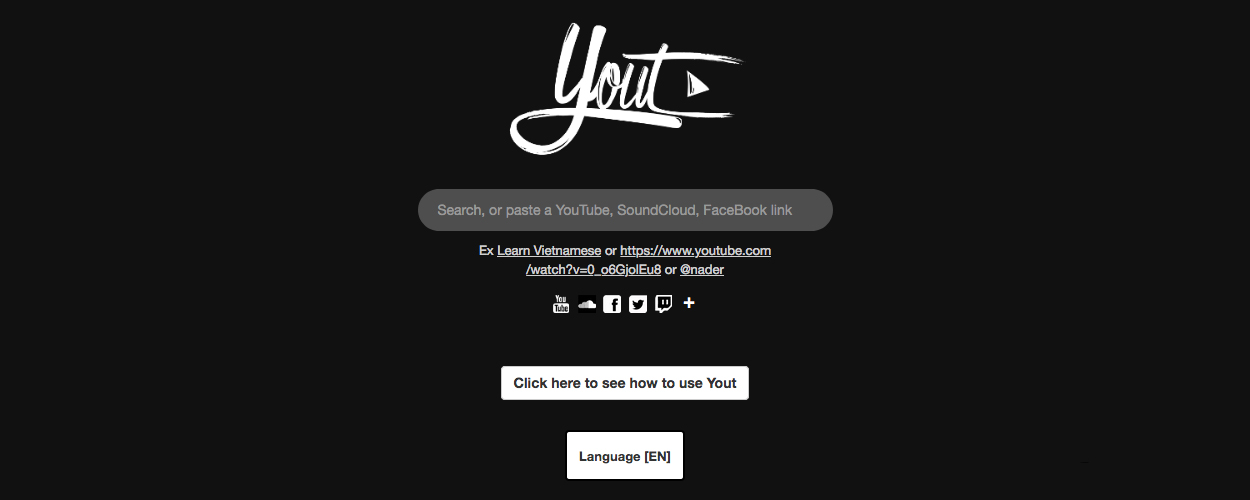This website uses cookies so that we can provide you with the best user experience possible. Cookie information is stored in your browser and performs functions such as recognising you when you return to our website and helping our team to understand which sections of the website you find most interesting and useful.
Business News Digital Labels & Publishers Legal
RIAA responds to appeal from stream-ripper Yout
By Chris Cooke | Published on Tuesday 9 May 2023

The Recording Industry Association Of America last week responded to an appeal filed by stream ripping service Yout as part of the ongoing dispute over whether or not the stream ripper violates US copyright law. The record industry trade group insists that a lower court was correct when it concluded that yes, it does.
Websites that allow people to download permanent copies of temporary streams – most commonly streams on YouTube – have been a top piracy gripe of the music industry for some time now, of course. Which is why the RIAA tried to get Yout de-listed by the Google search engine.
That prompted Yout to sue the RIAA, arguing that its service was entirely legal. It doesn’t directly involve itself in copying. And – while US copyright law does prohibit the circumvention of technical protection measures that exist to stop people making copies of content without licence – YouTube doesn’t have any such technical protection measures to circumvent, according to Yout.
When the case got to court, it was that latter claim that was key to the proceedings. Yout pointed out that, if they know what you are doing, people can actually download content from the YouTube platform via a web browser. However, the labels argued that doing so is complicated and time-consuming, and deliberately so. And the fact YouTube has made it that way constitutes a technical protection measure.
The lower court ultimately side with the record companies on that point and granted the RIAA’s motion to dismiss Yout’s lawsuit. The stream-ripper then took the matter to the Second Circuit appeals court.
Yout reckons that its dispute with the record companies involves some “first time novel questions” and a “preponderance of disputed issue of fact”, and therefore the lower court was wrong to grant a motion for dismissal when there was a “clear need for discovery and expert testimony”.
Not so, the RIAA says in its response to the appeal, filed with the courts last week. “The district court’s opinion was correct on all counts”, it states. “It is in line with multiple courts that have found similar stream-ripping technology unlawful, in some cases (outside the United States) including Yout’s own service. The district court’s judgment should be affirmed”.
The US Digital Millennium Copyright Act, it goes on, “makes it illegal to ‘circumvent a technological measure that effectively controls access to a [copyrighted] work’ and traffic in such circumvention technology. The core questions in this case are whether YouTube employs a technological measure that effectively controls access to copyrighted works, and if so, whether Yout circumvents it. The answer to both questions is yes”.
“Yout raises a scattershot of arguments for reversal”, it then goes on. “None of them succeeds”. Expanding on that, the RIAA says that Yout insists discovery is necessary in this case to determine whether YouTube “intended” for various technicalities that make manually downloading content from its platform somewhat complex to actually constitute a technical protection measure. “But YouTube’s intent is irrelevant under the statute”, the RIAA counters.
“Yout also argues that YouTube ‘does not restrict access to the videos available on its website'”, the RIAA adds. “This is wordplay. YouTube provides access to streamed performances of music videos, ie, YouTube allows a user to press ‘play’ to watch and listen to a video”.
“But YouTube uses technology to restrict users from accessing the underlying copies of the digital files containing the audio and the video, ie access to the copyrighted works themselves, such that users in the ordinary course cannot download copies of the music video files”, it continues. “Indeed, if YouTube did not restrict access to those files, there would be no need for Yout’s service”.
With all that in mind, the RIAA concludes, the appeals court should uphold the lower court’s ruling.





